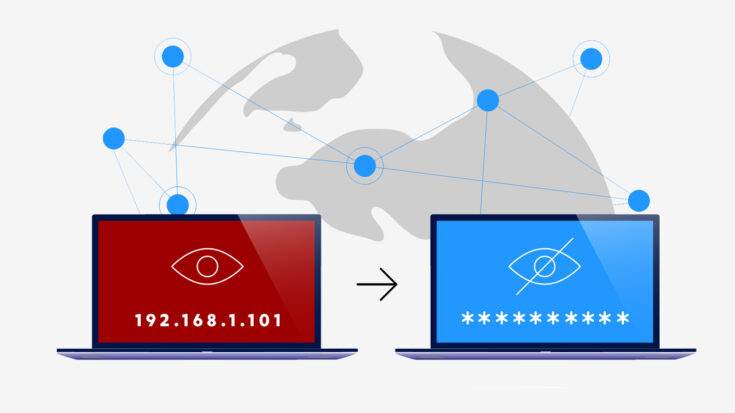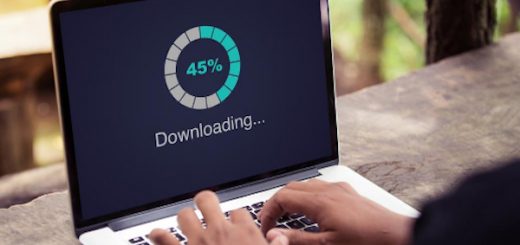Understandably, so many people are looking for methods to conceal their IP address in an age where news stories about hackers hacking into business and personal networks, websites monitoring online consumer activity, and other types of digital espionage and intrusion are frequent. But if you don’t know much about the internet, all this talk of hackers, cybercriminals, tracking, and IP addresses could make you anxious whenever you use the internet.

But don’t be concerned; there is a simple solution to increase your security and conceal your digital imprint from nosy people, and it isn’t as challenging as you may imagine. Both an advanced degree in computer coding and the installation of pricey programs on every device are not requirements. Simple knowledge of IP address concealment is all that is required.
What is the IP Address?
The IP address, sometimes referred to as Internet Protocol, is the unique identifier of your equipment on the huge internet. With the aid of your IP address, all traffic to and from your device is kept up.
Similar to your home address, each gadget has a unique IP address. If someone has your IP address, it may appear pretty innocent, but actually, it could be very risky.
Cybercriminals use your IP address, and you are accountable for all activities done through it. They steal your IP address and utilize it for various immoral and unlawful acts, such as downloading unauthorized content or breaking into other people’s accounts. The hacker has access to your IP address, allowing him to manipulate your location for any purpose and infect your device with malware.
Best Ways to Secure and Hide IP Address
You can select between essentially two techniques to conceal your IP address. A virtual private network is used by one while a proxy server is used by the other (VPN). Either one will be adequate, but VPNs are a better option for many due to a few drawbacks associated with proxy servers.
- VPN
A VPN is a middle server that hides your IP address and encrypts your connection to the internet. A VPN encrypts all of your traffic, including that which you send from other apps and your browser, and then forwards it to its intended location. Since they’re a well-liked privacy option, VPN companies have a strong incentive to create solutions that are both user-friendly and secure.
Your IP address is concealed when using a free VPN for Windows or another OS since your traffic is routed through the VPN server. Your traffic, such as the websites you browse, the online programs you use, the uploads and downloads you make, etc., travels to their destination using a “virtual” IP address given to you by the VPN.
Pros:
- Private communications, passwords, usernames, financial information, and everything else that is often a part of your digital footprint can all be secured with the help of VPNs.
- When you use a VPN, all the information linked to your internet browsing sessions is encrypted in addition to hiding your IP address.
Cons:
- Remember that using a VPN might result in a slower internet connection. Your connection may become slower if a VPN’s remote servers are used to route your internet traffic. However, a VPN is undoubtedly worthwhile if you value your online privacy.
- Proxy
Your internet traffic is managed by a proxy server on your behalf. A proxy lies between a server and a client or network of clients, relaying requests and receiving and delivering server responses. If you want to use a proxy, you might have to modify your device’s proxy settings manually.
Contrary to a VPN, most proxies do not encrypt traffic, nor do they mask your IP address from anyone who might intercept it as it travels from your device to the proxy. The reliability of proxy servers is typically lower than that of VPNs, especially free web-based proxies. Because of this, proxies work best as an immediate fix rather than a long-term privacy strategy.
Pros:
- To conceal an IP address, people primarily use proxy servers. Your whole internet usage goes through the proxy server, hiding your IP address from prying eyes.
- Additionally, security is increased by using a proxy server because it provides an additional layer of defense against hackers.
- And one of the easiest ways to conceal your identity if you want to access the internet anonymously is by using a proxy server.
Cons:
- One of the major disadvantages of utilizing a proxy server is that even if you can browse the internet anonymously, the proxy server can still store important data, such as the usernames and passwords you use to log into online accounts.
Conclusion
Cybercriminals abound in the online world; thus, using the internet puts you at constant risk. However, this does not imply that internet use should be discontinued because of security risks. Being extra watchful about your security is necessary right now. It is crucial to take precautions for the security of your equipment and connection and to spend money on security software and services.




